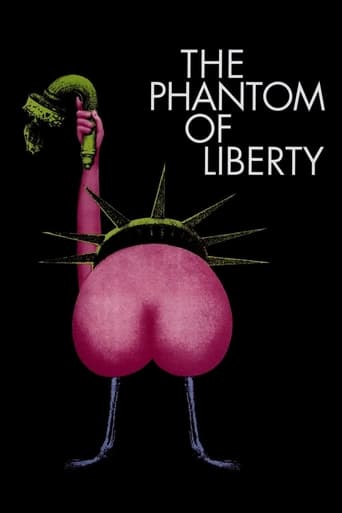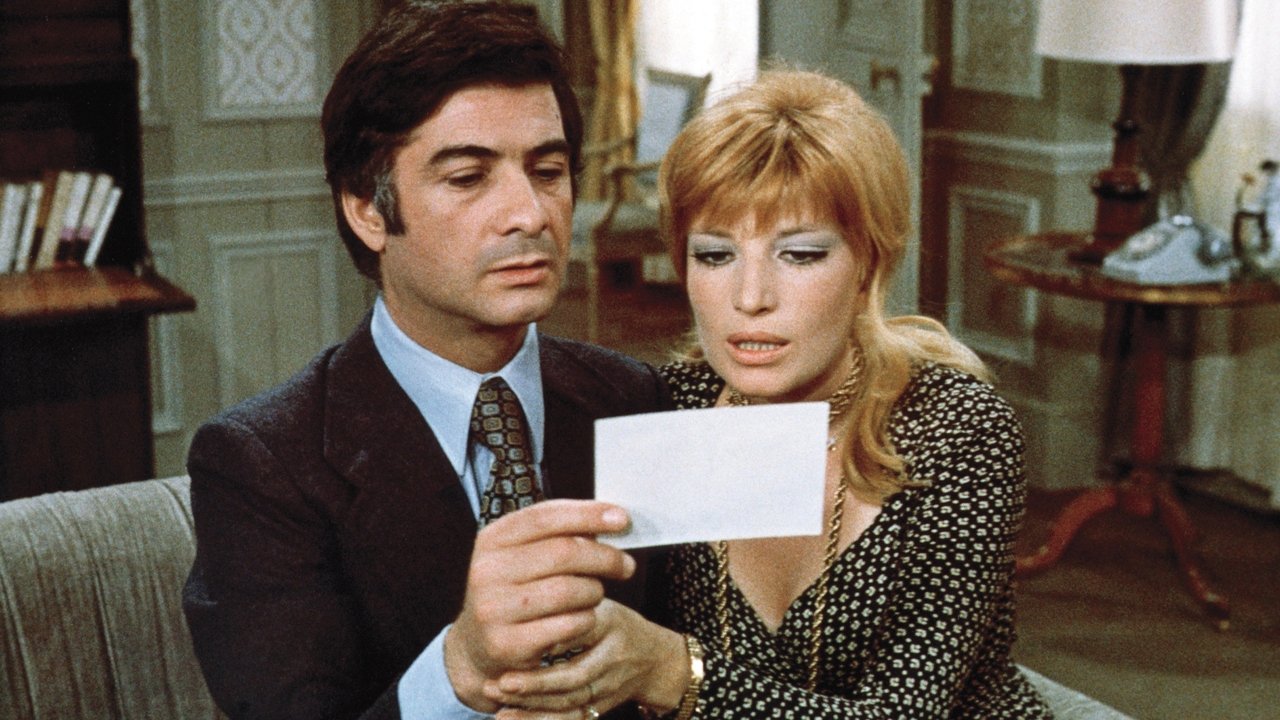framptonhollis
There is no denying that "The Phantom of Liberty" is a flat out WEIRD movie filled with surrealist gags and head scratching visuals, but does that make it a good movie exactly? It depends on whom you ask, many film buffs are certainly huge fans of Bunuel's odd, quirky, and mindbending style while the casual viewer may simply dismiss his work as being pretentious nonsense disguised as "art". Personally, I side with the former view, and while watching "The Phantom of Liberty' I gleefully relished in Bunuel's bizarre glory. This certainly is not a film for those seeking a clear definable plot or a series of light, cliché jokes; instead, it is a wild ride through Bunuel's vast imagination. It is a series of comical scenes, much like Bunuel's previous work "The Discreet Charm of the Bourgeoisie", rather than being a film with any real plot. Similarly to Linklater's "Slacker", the film just follows character after character once the camera seems to get bored with them and their comical vignette is done. Otherwise, however, this film is nothing like "Slacker" and, instead, mostly mirrors every gem of surrealist comedy one could think of. It sort of works as a culmination of everything Bunuel has made as he shows off his signature style, aware that he is approaching the finale of his career. Sense is thrown out of the window and is replaced with ostriches, toilet bowls, and architectural imagery that is perceived as being pornographic. Bunuel playfully mocks religion as always, while also breaking countless taboos, stuffing his film with just enough violence and sex to both shock and amuse (often at the same time).
Scott44
***User-reviewer Claudio Carvalho ("A Delicious Surrealistic Satire to the Moral and Costumes of the Society, to the Family and to the Church", Claudio Carvalho from Rio de Janeiro, Brazil, 5 May 2005) has interesting comments. Also, Hasosch ("The Dissolution of Form and Function", hasosch from United States, 19 July 2007) takes a stab at interpreting it.***"Phantom Liberty (1974, Luis Buñuel)," a surreal comment on the ruling class, is a curious, occasionally very disturbing work arranged with quality. Seemingly a nearly random series of absurd and/or awkward moments, it makes much more sense when one does not seek a linear narrative. Some cinema scholars have noted the connections it makes with the work of Italy's Pier Paolo Pasolini, who was at the time a contemporary of Buñuel's in film surrealism. (Buñuel has a character named Doctor Pasolini. Unfortunately for art house cinema fans, the highly provocative Pasolini was tragically murdered in 1975.) "Phantom Liberty" contains some ideas which can be enjoyed by many people. One of the most popular moments is when concerned parents seek help from French authorities for their missing daughter, while she is sitting nearby (and the adults all interact with her). Also, a poet-turned-sniper, initially witnessed inside a tower committing a horrific massacre of unsuspecting, random adults at street level, is subsequently tried in a formal court of law. Once the sentence of death has been delivered with stern finality by the judge, the poet-sniper is promptly freed, congratulated and treated like a major celebrity.There are also scenes that are consciously disturbing. We open with French troops executing Spanish civilians in 1808. (One of the victims is Buñuel.) Later, a young nephew seeks to fulfill his sexual urges with his considerably older, virginal Aunt. There is also the justifiably famous scene where a ruling class family meet at a large table not to dine, but to sit on and use toilets. The actors play this singularly bizarre moment straight, as if they were appearing in a mainstream movie. Some religious people will also likely find offensive the way a group of middle-aged monks relax in the evening. First, they meet to pray with an attractive woman (of the same age) in her bedroom. Later, the monks and the woman are observed playing poker like card sharks, smoking like chimneys and calling some cards "virgins." The partying monks will conclude their evening by witnessing an S & M session.Speaking of the latter, Italian siren Adriana Asti appears in two especially erotic scenes. We see her early on as a stunning, head- turning dominatrix. Later, she is a pianist performing a Brahms piano concerto liberated from the confines of all her clothing. (Warning: Please don't drive or operate heavy machinery while watching Asti seemingly tickling the ivories in her birthday suit.) Buñuel uses the naked pianist at the right time to keep the viewer interested. If one wishes to make sense of the chaotic narrative, try applying the visuals of a scene with the dialogue of the scene that follows. Doing so takes some effort, but the payoff is uncovering Buñuel's true nature, which is far more conservative than he is generally perceived.At the film's conclusion, the French police commissioner--played by two actors simultaneously—is considering a brutal military assault on the general public watching animals at the local zoo. Throughout, Buñuel seems to be drawing comparisons between the ruling class and the animals in captivity. This idea lends some explanation for the family on toilets scene and the other scatological moments. Buñuel is narrowing the gap between humans and animals in defiance of the behavioral norms that most people associate with an evolved species. While not for everyone, "Phantom Liberty" should be seen by cinephiles who understand surrealism often comments on life more directly than traditional narratives do. While it seems perfectly mad to many, Buñuel's effort here is just as not much more insane than the news horror story we are being exposed to daily.
Azra666
If you're not familiar with surrealism, this is a must watch as its 100% concentrated surrealism will keep you entertained and confused throughout the entire movie.This was my first Bunuel movie so I didn't know what I was expecting but certainly not this. The movie was organized in episodes or tableaux's. Every episode continues after one another and contain their own essence and message. They question the concept of reality. what is reality? is it what you make of it? how was it establish? who made the rules? My favorite tableaux has to be the scene where the family switched the role of the bathroom and dining room. It completely took me off guard, I was pleasantly surprised. And that's when I truly understood surrealism. To me, that scene was the definition in surrealism. why do we do the things the way we do?This is was a brilliant movie and I will surely watch every one of sir Bunuel's movies. This was my gateway to surrealism. Hopefully, it's yours too.
coster_james_michael
Watching The Phantom of Liberty is unlike any other film-watching experience. Buñuel presents a series of seemingly unrelated vignettes woven together by mere chance or coincidence. Just as Buñuel develops a character beyond their name or title, he whisks the viewer away to focus on another character and their experience. The film not only employs dream-logic through its surrealist mise en scéne, the film also has the pacing of a dream. Like the series of half- remembered dreams we have each night, each vignette leaves a vague impression of itself after its viewing; not to be consciously understood, yet its presence can be felt with each following scene. While there are core thematic ideas woven throughout the film regarding political and social satire, on first viewing it is hard not to get lost in the dreamy surreality of real-life that Buñuel so eloquently portrays in his 1974 masterpiece.


 AD
AD




